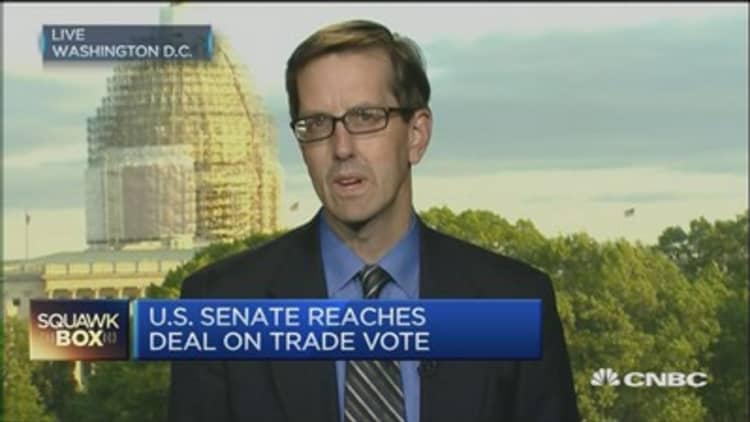
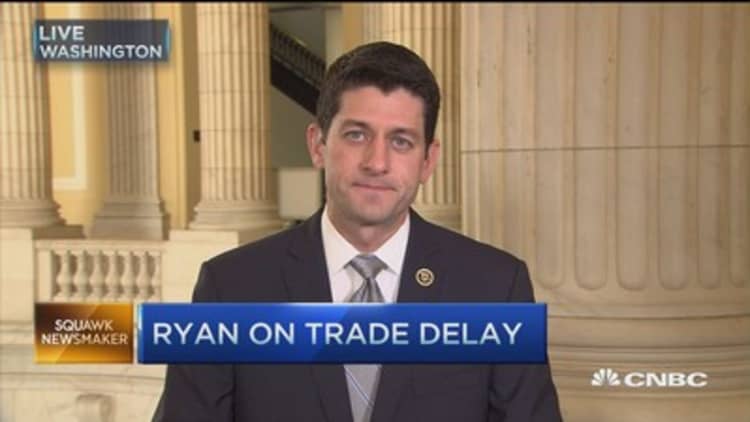
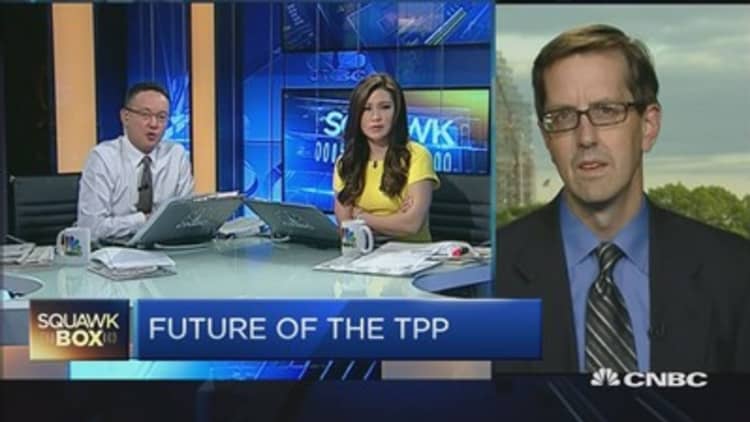
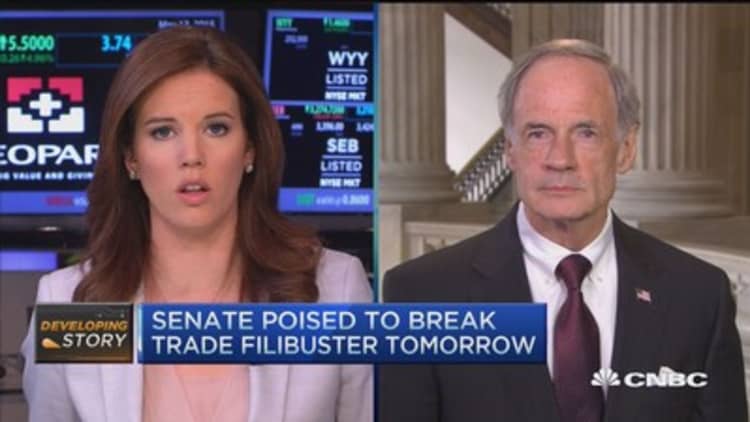
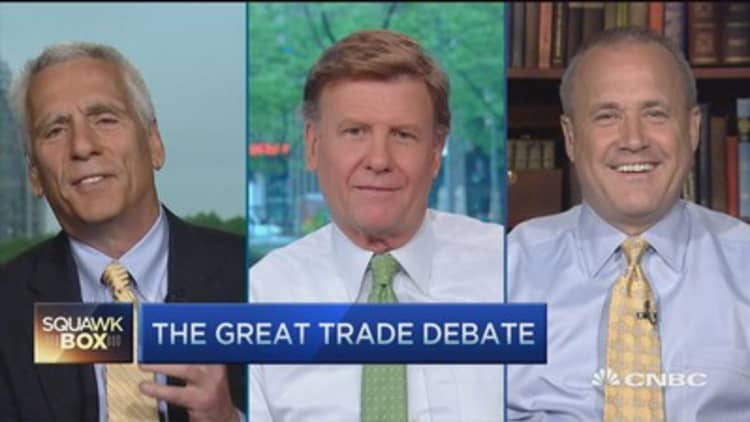
Tensions boiled over earlier this week when Senate Democrats dealt a defeat to a major trade initiative being pushed by President Barack Obama.
But after a day of intensive lobbying, the president apparently convinced members of his own party to side with Republicans and allow a debate on granting the White House so-called fast-track authority. That power would allow Obama to negotiate international trade agreements that the legislative branch can then approve or disapprove, but not change or filibuster.
The White House won a minor victory on Wednesday with the Senate agreement, but Obama's push for fast-track (also called trade promotion authority, or TPA) is just the beginning of a battle for one of his key economic goals: The passage of a trade agreement that will unite nations around the Pacific Ocean and re-establish America's leadership in the region for the 21st century.
Why are Democrats fighting the president?
Liberal lawmakers argue a trade agreement would do more harm than good for America if it lacks adequate enforcement measures. Some Libertarians oppose the deal as well.
Many Democrats want to be able to punish countries that unfairly manipulate their currencies to keep their exports cheap. (China, which is often accused of currency manipulation, is not part of the proposed trade agreement, but other countries like Japan are.)
After the first procedural vote on TPA failed Tuesday, those lawmakers won the scheduling of a separate vote on a bill that would address that worry.
Read MoreCommentary: Why we need TPP currency rule
The Senate voted on Thursday 78-20 to pass the bill, which also toughens customs procedures and raises the threshold for customs duties for packages sent from overseas to $800, from $200. The Obama administration has said the rules against currency manipulation would violate existing international trade laws.
Some politicians are also asking for tougher controls on other nations' labor and environmental standards, which they see as necessary to create a level playing field in any free trade agreement the United States enters.
The White House contends that strict controls would make a deal untenable for would-be trade partners.
Massachusetts Sen. Elizabeth Warren has also expressed worries that TPA could give a future president the opportunity to unravel Wall Street regulations. Obama told Yahoo earlier this month that the senator is "absolutely wrong" on her criticism of the proposed free trade agreement, and the corresponding fast-track bill.
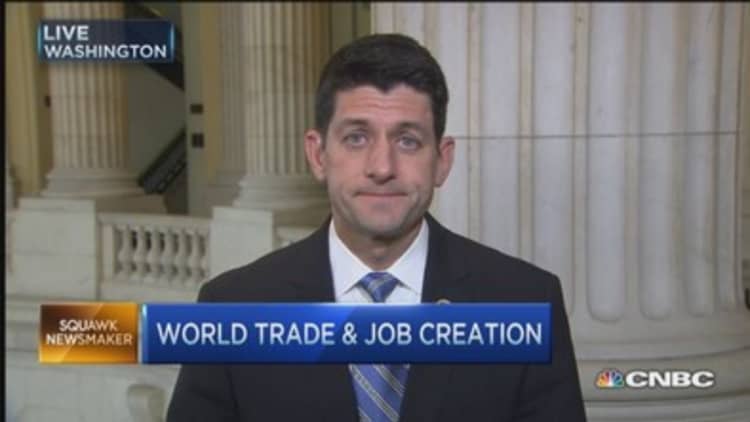
What do Obama (and Republicans) want?
The White House does not strictly need TPA in order to pass the trade bill, but administration officials told CNBC that such a situation would allow for more power at the international bargaining table. The argument goes that any deal could be mangled on Capitol Hill without TPA, so potential partners would feel less confident in U.S. capacity to deliver on any agreements.
The proposed Pacific trade agreement itself, known as the Trans-Pacific Partnership (TPP), was already nearing the final stages of negotiation in March, an administration official told CNBC at the time. Those discussions involve 11 countries besides the United States—Australia, Brunei, Canada, Chile, Japan, Malaysia, Mexico, New Zealand, Peru, Singapore and Vietnam.
Read MoreMajor Asia-Pacific trade pact enters final stages
The White House and many lawmakers argue that this agreement is crucial to proving that the U.S. "pivot" to Asia is not just a shift of military assets, but also an economic commitment to the region. They also argue that it will open up markets to American exports, thereby strengthening the U.S. economy.
Some politicians say the TPP is necessary to fight China's influence in the area, establishing an American-led system of regional trade standards, though the White House publicly dismisses that position.
Rep. Paul Ryan made that claim in an interview with CNBC's "Closing Bell" in April.
Read MoreJapan's Abe to Congress: TPP's value is 'awesome'
"China is going around the world trying to write the rules for the global economy to benefit themselves," the former Republican vice presidential candidate and chairman of the House Ways and Means Committee said. "I don't think that's in our interest. ... We're either helping shape the global economy, or it's shaping us."
—Reuters contributed to this report.


